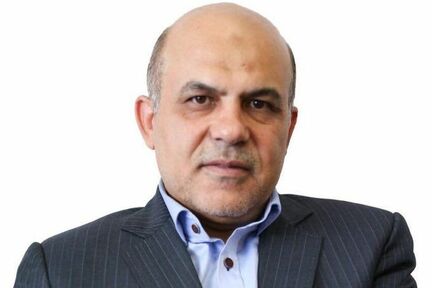On spying – Farnaz Fassihi and Ronen Bergman in NYT:
‘In April 2008, a senior British intelligence official flew to Tel Aviv to deliver an explosive revelation to his Israeli counterparts: Britain had a mole in Iran with high-level access to the country’s nuclear and defense secrets.
The spy had provided valuable information — and would continue to do so for years — intelligence that would prove critical in eliminating any doubt in Western capitals that Iran was pursuing nuclear weapons and in persuading the world to impose sweeping sanctions against Tehran, according to intelligence officials.
The identity of that spy has long been secret. But on Jan. 11, the execution in Iran of a former deputy defense minister named Alireza Akbari on espionage charges brought to light something that had been hidden for 15 years: Mr. Akbari was the British mole.’
(…)
‘In addition to accusing Mr. Akbari of revealing its nuclear and military secrets, Iran has also said he disclosed the identity and activities of over 100 officials, most significantly Mohsen Fakhrizadeh, the chief nuclear scientist whom Israel assassinated in 2020.’
(…)
‘Mr. Akbari, who was 62 when he was executed, was an unlikely spy. He displayed a fanatical allegiance to the ideals of the Islamic Republic and unwavering support for its leaders, according to interviews with his brother Mehdi Akbari and people who knew him.
His most distinct physical feature was a dent on his forehead — a sign of his devotion to the Shia faith of Islam that came from pressing his forehead to the mohr, a clay stone used in daily prayers. He held extremist political views, expressed in fiery writings, speeches and interviews and, according to a senior Iranian diplomat and an adviser to the government, in official meetings, he argued that Iran should acquire a nuclear weapon.
“My brother was deeply religious and very revolutionary, more so than anyone in our family,” said Mehdi Akbari.’
(…)
‘The motivation for Mr. Akbari’s actions remain unclear. He said in the video that he was driven by “greed and power,” though also denied having financial problems. Iran says Mr. Akbari betrayed the country and traded state secrets for money. His family denies he was a spy and says that many assertions in the videos were fabricated by the Iranian government. But, they say, many of the dates and events in the videos were correct.’
(…)
‘In April 2008, Britain received and shared with Israel and Western agencies the intelligence about Fordo, a uranium enrichment facility deep inside an underground military complex, that was part of Iran’s efforts to build a nuclear bomb. Fordo’s discovery changed the world’s understanding of Iran’s nuclear program and redrew the West’s military and cyber plans for countering it.
“The information about Fordo shocked us,” Yoni Koren, who was the chief of staff for Israel’s defense minister at the time, said in an interview in 2019. (Mr. Koren died in January.)’
(…)
‘“The discovery of Fordo radically altered the attitude of the international community toward Iran,” said Norman Roule, the former national intelligence manager for Iran at the C.I.A. He added that it helped convince China and Russia that Iran had not been transparent about its nuclear program and drove the push for more sanctions.’
(…)
‘In 2019, Mr. Akbari flew to Iran for a final time after Mr. Shamkhani, the Supreme National Security Council head, told him the country needed him on an urgent nuclear and defense matter, his brother said.
A few days after his return to Tehran, he was summoned to the Intelligence Ministry. Worried, he called Mr. Shamkhani, who told him that the authorities had heard he was in contact with MI6 and urged him to cooperate to prove his innocence, his brother said. After several interrogations, he was arrested.’
(…)
‘Mr. Akbari was detained by the Intelligence Ministry and held in solitary confinement for months in an underground detention and then in Tehran’s notorious Evin prison, his brother said. The family was told to keep the arrest under wraps. Iranian officials said on state media after his execution that they had him regularly log in to a computer provided by the British and communicate with his handlers to mislead them.’
(…)
‘Mr. Akbari’s family was allowed to hold a memorial service in Tehran 40 days after his death. They rented a hall in a mosque, arranged white flower baskets and served trays of halvah, the traditional sweet served at funerals. They sat on chairs that lined the walls, ready to greet a procession of his friends, colleagues and associates from his various roles serving the Islamic Republic for 40 years.
But nobody came, they said. Only his family attended.’
Read the complete article here.
This could be a novel, actually the article is close to a skeleton of it.
As in every good novel many questions unanswered, in other words these questions have to be answered by the reader.
Most often spies are low-ranking or middle-ranking officials, such a high-ranking official, a true believer it seems, shows the miracle that man is.
We can change our minds; we can change our minds radically. It doesn’t happen often, but when it happens we realize that there are so many ‘unknowns’ of the people we love most.
What motivated Mr. Akbari, why did he return to Iran? As with many other activities, also spying is a matter of knowing when to stop.
Did he change his mind about the revolution? The sheer adventure?
And the family waiting for mourners, that is an incredible image, a metaphor for the loneliness of the spy and his family.
